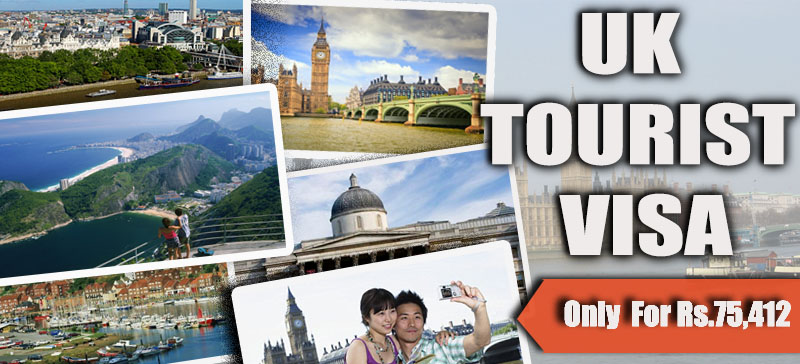
uk-tourist-visit-visa600#57c9e0
WHAT’S INCLUDED
> Overseas Medical Insurance for the duration of the tour (Sum of US$ 2,50,000 covered)
> 6 nights accommodation at simple hotels/hostels mentioned or similar (multi-share)
> 1 overnight train
> Meals Included: 5 Breakfasts,1 lunch. (Allow EUR 280-380 for meals not included.)
> Picnic in front of Eiffel Tower (Paris).
> Orientation walks in Interlaken and Milan.
> Services of Chief Experience Officer (CEO) throughout the tour.
> All transport between destinations and to/from included activities.
> Train, public bus, metro, walking.
> Govt Service Tax of 3.09% payable to Govt of India.
> DAY 1 LONDON / PARIS
On Day 1 we meet in London at 6pm and make our way by train to Paris (please refer to joining instructions for more information on where to meet).
Please note the trip departs London in the evening of Day 1 so it is imperative you arrive on time for departure soon after the 6pm Welcome Meeting. Please ensure you allow plenty of time for your journey to London to allow for any possible delays.
Estimated travel time: 4 hours (None (Meals on your own))
> DAY 2 PARIS
(Lunch)
> DAY 3 INTERLAKEN
Spend the morning in Paris before travelling south into Switzerland.
Interlaken is known as the adrenaline capital of Switzerland due to its many adventure sports such as paragliding, skydiving, hang gliding, bungee jumping, rafting and more. Cruise through town on an orientation walk to get your bearings. (Breakfast)
> DAY 4 INTERLAKEN
(Breakfast)
> DAY 5 INTERLAKEN
As the hub for so many adventure activities, Interlaken attracts young and young-at-heart tourists, thus creating a bustling nightlife scene. Play hard during the day and harder at night if you wish. Or breathe in the fresh Alpen air and enjoy blissful sleep. (Breakfast)
> DAY 6 MILAN
(Breakfast)
> DAY 7 ROME
Rome is full of fabulous sites. Possibly the most recognized symbol of the city is the Colosseum, the scene of the bloody gladiator bouts for the entertainment of ancient Rome’s aristocracy. Take a tour around the old venue and then head over to the Palatine hill and the Roman Forum to see where it all began. Even with the bustle of modern day Rome whizzing past on Vespas you can still lose yourself in the fragmented columns and ancient ruins, conjuring images of the rich Romans sauntering by in togas.
From the Colosseum it’s not too much of a hike to Piazza Navona. Known for the Baroque buildings surrounding the square, and its beautiful central fountain, it’s truly a great place to walk, mingle with the Romans, and sip a cappuccino at one of the sidewalk cafes.
Next stop can be the Spanish Steps and Trevi Fountain. Sit among the young Italians cuddling on the steps or watch the rich and powerful shopping in the elegant boutiques nearby. Take a short walk over to the Fontana di Trevi to throw a coin over your shoulder backwards to ensure your return to this magical city.
When you’ve had enough of secular Rome, head to the smallest country in the world, the Vatican City. Located within the city of Rome, the Vatican City is a separate country ruled by the pope and the perfect place to see art and religion intertwined. Within the Vatican, you will find the famous St. Peter’s Basilica, the world’s largest church and the headquarters of Roman Catholicism. It is difficult to decide whether to look up, down, or to the side as there are treasures everywhere in the church: Bernini’s canopy, the dome, the treasury, the statue of St. Peter, the Pieta, and the grotto should all be seen, and it can be possible to attend services in the church.
The Vatican Museums are near the basilica and contain priceless works of art from ancient to modern times. There are many different galleries but seeing all of them is definitely not possible in one day, so do a little research before visiting and decide what you really want to see. There are countless pieces of art, including statues, busts, Renaissance paintings, tapestries, early icons and Egyptian artifacts, just to name a few. Two of the most well-known exhibits in the Vatican Museums are the Sistine Chapel and the Raphael rooms.
Although the Sistine Chapel is always very crowded, it is a must-see for any visitor to the Vatican. The magnificent frescoed ceiling of the chapel painted by Michelangelo depicts over 300 figures from the Book of Genesis, the most well-known being “The Creation of Adam,” showing God touching the finger of Adam. “The Last Judgment” on the west wall depicts a scene from the Book of Revelations.
It’s a good idea to book a ticket to the Vatican online from home or with some advice from your CEO as waiting until the day you arrive may well be too late! Ask your CEO for help booking tickets in advance (None (Meals on your own))
> DAY 8 ROME
Depart at any time. (Breakfast)
> MEAL BASIS
As per itinerary – B: Breakfast, L: Lunch, D: Dinner, N: No meals
> We recommend you to have a meal budget of EUR 280 – 380 for food and drinks which are not included in the programme.
> This programme is operated on a Coach tour. Maximum Group size is 16 passengers, at an average there are 10 passengers travelling on this tour.
> It is important to note that in Europe, all guiding is based around local guides all of whom are licensed to work only in a particular city. As such, our leaders are able to provide orientation walks which will show you the layout of each town and city as well as the location of local services such as post offices and laundromats, but are unable to legally share historical facts and figures in public places.
> In Europe it is very rare to find elevators in train stations, hotels or other public places. We use public transport on this trip, which means you will need to carry your luggage from platform to platform, in and out of trains and buses etc. and also possibly up several flights of stairs. You will also need to be able to stow your luggage safely on trains and buses. It is therefore essential that you pack light and bring luggage which is compact and lightweight, and which you can easily transport. The carrying of your luggage remains your responsibility at all times.
> This trip has a fast-paced itinerary with some long transport days – please check the itinerary carefully before deciding if this trip suits your needs.
> Please note that if you wish to visit popular museums such as the Vatican Museums (Sistine Chapel) and Villa Borghese in Rome, to avoid waiting in line for a long time (especially in high season May-September when it could be a question of hours!), it is advisable to reserve tickets in advance. Tickets can be reserved online at various websites including www.tickitaly.com.
> Itinerary descriptions are guaranteed with the exception of unforeseen conditions which include, but are not limited to, road closures due to weather, acts of God, safety concerns, changes to highway legal restrictions, and acts by third parties beyond the control of Service Provider.
> There is no refund for any non-utilization of any services.
> At this point of time no services are confirmed and the same is subject to availability.
> Request for an early hotel check in or late checkout is at the discretion of the accommodation unless pre-booked and pre-paid in advance.







Overview
UK tourist visa You can apply for a Standard Visitor visa if you want to visit the UK:
- for leisure, eg on holiday or to see your family and friends
- for business, or to take part in sports or creative events
- for another reason, eg to receive private medical treatment
Check if you need this visa if you’re visiting from outside the European Economic Area (EEA) or Switzerland.
You might not need a Standard Visitor visa if you qualify for British citizenship. Read the guidance on right of abode (ROA) to find out what you should do instead.
The Standard Visitor visa has replaced the:
- Family Visitor visa
- General Visitor visa
- Child Visitor visa
- Business Visitor visa, including visas for academics, doctors and dentists
- Sports Visitor visa
- Entertainer Visitor visa
- Prospective Entrepreneur visa
- Private Medical Treatment Visitor visa
- Approved Destination Status (ADS) visa
If you visit the UK on business
You can apply for a Standard Visitor visa if you want to visit the UK for business-related activities, eg:
- you’re coming to the UK for a conference, meeting or training
- you want to take part in a specific sports-related event
- you’re an artist, entertainer or musician and coming to the UK to perform
- you’re an academic and are doing research or accompanying students on a study abroad programme
- you’re a doctor or dentist and are coming to the UK to take a clinical attachment or observer post
- you want to take the Professional and Linguistic Assessment Board (PLAB) test or sit the Objective Structured Clinical Examination (OSCE)
- you want to get funding to start, take over, join or run a business in the UK
Check the the Visitor Rules to find the full list of business-related activities you can do with a Standard Visitor visa.
What you can and can’t do
You can:
- take part in any of the business-related activities mentioned in the Visitor Rules
- study for up to 30 days, as long as it’s not the main reason for your visit
- take part in an exchange programme or educational visit (if you’re under 18)
You can’t:
- do paid or unpaid work
- live in the UK for long periods of time through frequent visits
- marry or register a civil partnership, or give notice of marriage or civil partnership
- get public funds
Read the guidance for more information about what you can and can’t do with a Standard Visitor visa.
How long it will take
You can apply for a visa up to 3 months before your date of travel to the UK.
You should get a decision on your visa within 3 weeks.
Check the guide processing times to find out how long getting a visa might take in the country you’re applying from.
How long you can stay
You can usually stay in the UK for up to 6 months.
You might be able to stay for up to 11 months if you’re coming to the UK for private medical treatment.
You, your spouse or civil partner and children might be able to stay for up to 12 months if you’re an academic on sabbatical and coming to the UK for research.
You must apply for a biometric residence permit if you’re staying in the UK as an academic or to receive private medical treatment for longer than 6 months.
You might be able to get a visit visa for up to 30 days if you’re a visitor under the Approved Destination Status (ADS) Agreement.
You can also apply for a long-term visit visa if you can prove you need to visit the UK regularly over a longer period. You can stay for a maximum of 6 months on each visit and your visa can last for 1, 2, 5 or 10 years.
Eligibility
You must always show that:
- you’ll leave the UK at the end of your visit
- you’re able to support yourself and any dependents for the duration of your trip
- you’re able to pay for your return or onward journey and any other costs relating to your visit
- any business or other activities you want to do in the UK, as allowed by the Visitor Rules
If you’re applying for a long-term visit visa
You must prove that:
- you have a frequent and ongoing need to come to the UK
- the reason why you need to come to the UK is unlikely to change while your visitor visa is valid
- you plan to leave the UK at the end of each visit
You may be given a visa for a shorter period than requested if you don’t do this. You won’t get a refund of the application fee if you get a shorter visa or your application is refused.
Your visa may be cancelled and you may get a long-term ban on visiting if your travel history shows you’re repeatedly living in the UK for extended periods.
If you’re applying as an academic
You can stay in the UK for 12 months if you’re applying as an academic. You must prove you’re highly qualified within your field of expertise, on sabbatical leave from your home institution and visiting to either:
- take part in a formal exchange with a UK counterpart
- carry out your own research
- take part in someone else’s research, teaching or clinical practice – as long as this doesn’t involve filling a permanent teaching post
If you’re applying to visit for private medical treatment
You must prove that you:
- have a medical condition that needs private consultation or treatment in the UK
- have made or paid for arrangements for consultations or treatment
- have enough money to pay for your treatment, support yourself without using public funds and pay for your return or onward journey
- will leave the UK once your treatment is completed, or when your visa expires
- are not a danger to public health if you’re suffering from an infectious disease, eg leprosy
If you’re applying as an organ donor
You can only visit the UK to donate organs to:
- a family member who you’re genetically related to (eg your sibling or parent)
- someone you have a close personal relationship with (eg your spouse or friend)
You must prove that the person you’re donating an organ to is legally allowed to be in the UK.
Documents you must provide
When you apply you’ll need to provide:
- a current passport or other valid travel identification
- one passport sized colour photograph
You should also provide evidence that you can support yourself during your trip, eg bank statements or payslips for the last 6 months.
You need a page in your passport that’s blank on both sides for your visa.
You’ll also need to provide a certified translation of any documents that aren’t in English or Welsh.
Read the guidance for a full list of supporting documents you can provide.
Other documents
You might need to provide additional documents if you’re visiting the UK:
- for private medical treatment
- to apply as an organ donor
- as an academic on sabbatical and want to stay for 12 months
- as a prospective entrepreneur
- to take the Professional and Linguistic Assessment Board (PLAB) test or sit the Objective Structured Clinical Examination (OSCE)
If you’re under 18
You can apply for a standard visitor visa if you’re under 18 and:
- you’ve made suitable arrangements for your travel and stay in the UK
- you have consent from your parent or guardian to travel to the UK
- you’re able to pay for your return or onward journey
- you have enough money to support yourself without working or getting help from public funds, or you have family and friends that can support you
Travelling alone
You can travel to the UK without an adult (someone over the age of 18).
Your parent or guardian will need to provide their:
- written consent for you to travel to the UK
- full contact details
They’ll also need to provide proof that you have somewhere suitable to live during your stay in the UK, including:
- the name and date of birth of the person that you will be staying with
- an address where you will be living
- details of your relationship to the person who’ll be looking after you
- consent in writing so they can look after you during your stay in the UK
Travelling with an adult
When travelling to the UK with an adult (someone over the age of 18), you’ll need to identify them in your visa application.
If the person you’re travelling with isn’t your parent, you’ll need to provide specific information about them in your application.
Their name will appear on your visa, and you’ll be refused entry to the UK if you arrive in the UK without them.
You can identify up to 2 adults in your visa application, and your visa will only be valid if you travel with at least one of them.
The adult can apply for a visa at the same time, but you must each complete separate applications.
Apply
Apply from outside the UK online
Fill in the visa application form online.
When you apply, choose the option that best describes why you’re coming to the UK, eg choose ‘general’ if you’re visiting on holiday.
You’ll need to have your fingerprints and photograph (known as ‘biometric information’) taken at a visa application centre as part of your application.
You may be able to get your visa faster or other services depending on what country you’re in – check with your visa application centre.
Apply and pay for a visa online.
Apply from within the UK
You might be able to extend your visa if you’re already in the UK.
Documents you’ll need
You’ll need the following information when you apply:
- your passport details
- your address and how long you’ve lived there
- your parents’ names and dates of birth
- the dates you’re planning to travel to the UK
- details of where you’ll be staying during your visit
- how much you think your trip will cost
- your estimated annual income
You might also need:
- details of your travel history for the past 10 years (as shown in your passport)
- your employer’s address and telephone number
- your partner’s name, date of birth, and passport number
- the name and address of anyone paying for your trip
- the name, address and passport number of any family members you have in the UK
- details of any criminal, civil, immigration offences you have committed
Apply from North Korea
You can’t apply online if you’re from North Korea. You must instead:
- download the form and guidance
- read the instructions on how to apply
Extend your visa
You may be able to extend your visa as long as the total time you spend in the UK is less than 6 months – eg if you apply for a 3 month visa, you can apply to extend it for 3 more months.
Read the guidance to find out if you can extend your visa.
You should apply before your current visa expires.
If you’re receiving private medical treatment in the UK
You can apply to extend your visa for a further 6 months if you:
- have paid for any treatment you’ve already had in the UK
- can and will pay the further costs of your treatment
- continue to meet the eligibility requirements
You must also get a medical practitioner or NHS consultant who’s registered in the UK to provide:
- proof of arrangements for your private medical consultation or treatment
- a letter saying how long your treatment is likely to take
- details of the progress of your treatment, if it’s already started
Eligibility
You must apply while you’re still in the UK.
How to extend your visa
You can:
- download the form and guidance and apply by post – the address is on the form
- download the form and apply in person at a premium service centre
How long it takes
A decision will be made:
- within 8 weeks for postal applications
- usually on the same day if you use the premium service
You’ll be contacted if your application is complex and will take longer, eg:
- if your supporting documents need to be verified
- if you need to attend an interview
- because of your personal circumstances (for example if you have a criminal conviction)
Once you’ve applied you can stay in the UK until you’ve been given a decision, as long as you applied before your last visa expired.
United Kingdom Destinations





